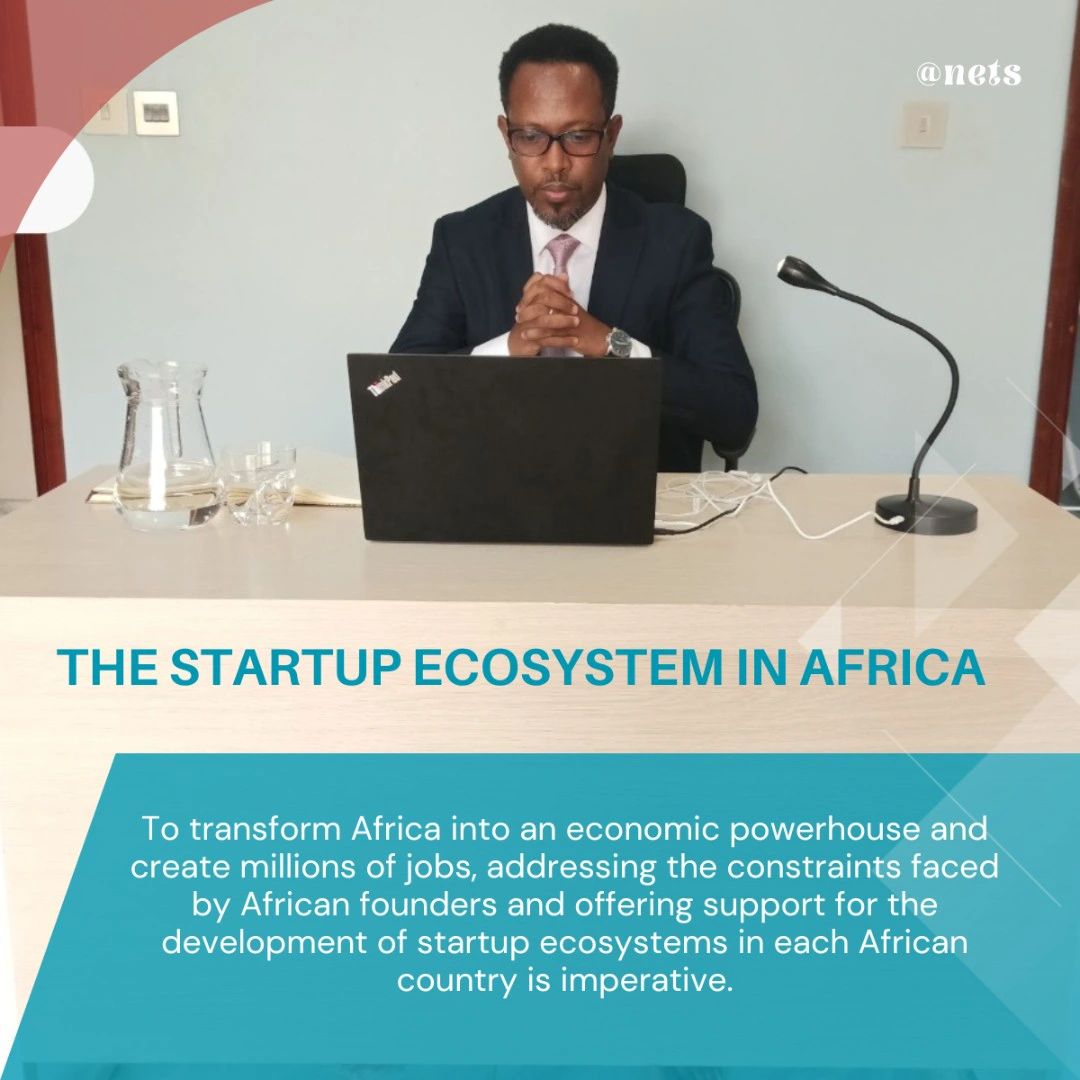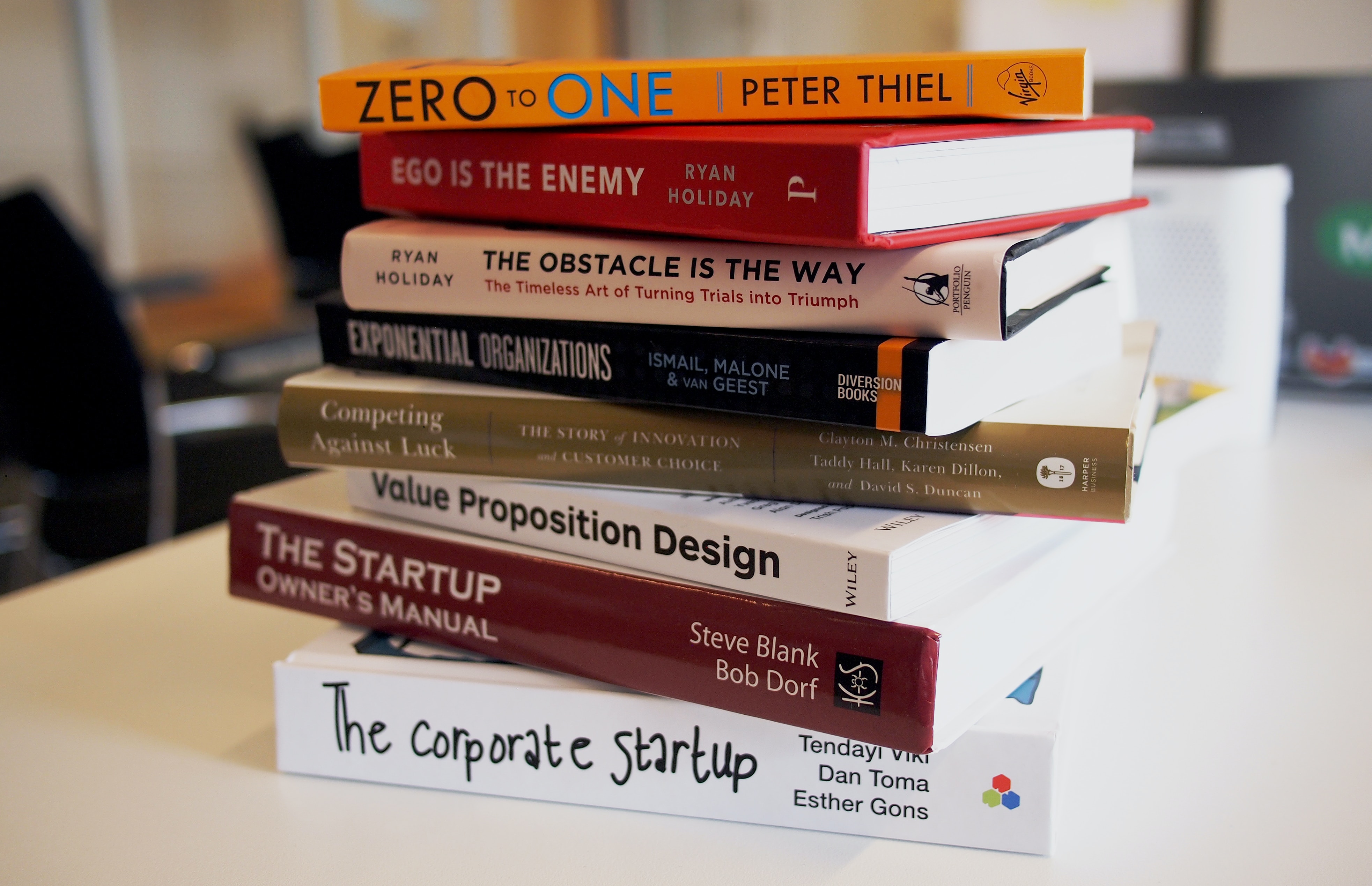MNM Blogs
All
National
International
Enterpreneurship
Entertainment

national
In the developed world, startups serve as the backbone of their economies. The amount of funding directed towards these startups is ginormous and is led by private investments.
Global startup ecosystem. (Source world of statistics)
Total unicorns:
USA: 644
China: 302
India: 111
UK: 46
Germany: 29
Other: 73
Total fundings in last 4 years:
USA: $930 billion
China: $259 billion
UK: $106 billion
India: $103 billion
Germany: $48 billion
Contrastingly, the startup ecosystem in #Africa is thin, and only a few countries are making slight progress in attracting private investment for their startups.
In my opinion, the main reasons why unicorns and even promising startups are not emerging prolifically in Africa are:
- A limited number of visionary founders. In other words, those with new business ideas lack the financial resources and courage to pursue them. Conversely, those with money lack innovative business ideas and long-term vision. As a result, they invest in safe bets for short-term returns.
- Poor business-enabling environment and policies that make conducting business difficult. These are the primary disincentives.
- Business incubators are predominantly donor-driven rather than market/private sector-driven. This has led to a significant dependency, where founders focus on keeping their startups afloat for immediate needs rather than focusing on growth.
- Access to finance for startups is extremely limited, and even where available, the amounts are minimal, with high borrowing costs.
- The startup ecosystems are unstructured and fragmented, resulting in minimal inflow of venture capital and private equity funding in Africa.
For Africa to become an economic powerhouse and generate millions of jobs, it is imperative to address the above constraints and provide support for the development of startup ecosystems in every African country.

entrepreneurship
The small scale industries have a very important and effective role in the developed countries generally and in developing countries
especially because it is considered the backbone of their economies. In respect of this, the main purpose of this study is to identify the
problems and prospects of small enterprise in Addis Ababa sub-city. To do this, data were collected from both primary and secondary sources.
The main instrument of data collection was the questionnaire and supported by interview. The data were presented in tables as frequency,
distribution in the data analysis; the techniques of percentages frequencies were used. The empirical studies elicit major challenges which
seem to affect performance of SSEs in subcities which include: inadequate finance, inadequate infrastructures, poor management
practices, multiple taxation and capital shortage in that order, are the major challenges affecting small scale businesses in Ethiopia. The
researcher suggested that the challenges and problems of the SSEs in Ethiopia are having many centers and hence can only be effectively
tackled by a multi-dimensional and concerted approach by all stakeholders i.e. the governments and their agencies, banks, regulatory
authorities, tax authorities,), the employees of SSEs, multilateral and bilateral agencies and donors.

international
Martina Akello is a seasoned Finance and IT professional, currently working in an international non-government organization as a Project
Manager for a Trade Facilitation project based in Uganda. She has over 6 years of experience in management consulting, advisory, and
market systems development. She has delivered pragmatic solutions to an array of clients that include Development Partners, SMEs,
Investors and Government entities. Her core technical skills and competencies include project management, people management, strategy
evelopment, data analysis, report writing and effective communication. She has experience in project delivery in the sectors of Agriculture,
Renewable Energy, Financial Services and Trade.
Martina has a Bachelor’s Degree in Software Engineering from Makerere University Uganda, and has successfully completed her studies in Accounting (Association for Chartered Accountants – ACCA Certification). In her free time, she enjoys reading, running, and traveling.
.jpg)
national
Why do the new NBE franco valuta directive will have zero impact to tame the galloping inflation in Ethiopia
Micro-blog by Netsaalem Bahiru
Inflation in Ethiopia as of March 2022 stands as 34.5%.
Why I think that allowing Ethiopian diaspora to import few consumer goods through franco valuta would not work.
First some facts regarding our economy
- Inflation is at 35% or more
- We are running negative real interest rate (-28%). Huge purchasing power loss on saving & income
- Better than $12B trade deficit (we import 3x more than we export)
- Shrinking economic growth due to war & drought
- Chronic shortage of foreign currency
- We don't produce enough food
- High youth unemployment
- Very low capital, land & labor productivity
- Ranked low in ease of doing business index
- No proactive (but reactive) economic policies
I can go on & on about the struggle of the economy but let me stop here.
Our economy with regard to international trade
- The top five destinations for our exports in 2019 were China (13%), the US (9.6%), Saudi Arabia (8%), Germany (5.9%) and UAE (5.5%)
- By region, our exports comprised of Asia (52%), Europe (24%), Africa (13%), & Americas (11%)
- Our imports come from Asia (67%) followed by Europe (17%), the United States (9.3%), and other countries in Africa (8.1%).
- Imports from China accounted for 26% of Ethiopia’s total foreign supplies.
The key features of our financial system
- We have birr non-convertible currency (blocked-currency) that is fiat just used for domestic transactions
- Our financial system is closed to international players. Means our foreign currencies reserve come only from export, FDI, aid, remittance & loan.
Our economy and global geopolitical dynamics
- The Russian-Ukraine was changing the world order and economic dynamics
- As US continued to heavily use US dollar as a sanction tool, Many countries started/thinking to de-dollarizing & diversifying their exposure to US dollar.
- Major countries started signing currency swap deals to bypass the US dollar
- Chinese renminbi (Yuan) is gaining fast traction as global reserve currency
- With all changing global order, we don't seem to factor these dynamics in our policy decisions b/c our mantra is Home Grown Economic Reform.
Now, knowing the above basic but major facts how ready is our economy to absorb shocks and stresses?
My answer to my own question is we are NOT ready to deal with any shocks and stresses. I honestly think that our politicians even denying that our economy is heading south & we're in uncharted territory.
Policymakers: apart from random actions what's their policy options to bring the economy back on track? What's in their toolbox? Not sure if they have one. I am being honest.
Here are major policy change they many need to consider to prevent the ship from hitting the iceberg.
The first and major step is to end the war and conflicts brewing everywhere. As things stand, we even can't afford peace let alone war.
Then use the real brainpower of experts to develop a comprehensive economic policy & strategy that's adaptive to the changing world order.
In my personal perspective: these are the major things that they may need to add in their policy toolbox to grow the economy in the long-run.
1) Prepare strategy to open the financial system gradually. This dramatically changes investors perspective & confidence to invest in our country.
2) Think about convertibility of Ethiopia birr- at least with our trading partners. At least sign currency swap deal or bilateral trade deals to trade with our own currencies with countries we are trading with such as China, UAE, African countries.
3) You can't keep printing birr and drive hyperinflation. STOP printing birr.
4) Think outside of the box- instead of asking the diaspora to import oil and food items through franco valuta; they can for example introduce investment-grade diaspora bond that is backed by gold (we mine gold, right?) With reasonable interest rate to increase forex?
5) Our economy is hugely tied to LAND (Elephant in the room). What's the long term strategy to privatize land? Unless we stop using land as political tool our suffering and poverty won't end. Using land as economic tool however addresses many of our political and economic problems.
6) For stable economy strong institutional independence is important. So, make National Bank of Ethiopia to be independent & proactively act when the key macroeconomic indicators change. The main role of the NBE suppose to be bringing inflation under control and maintain macroeconomic balance. Let them do that.
7) Make the business enabling environment easy so that we can increase our PRODUCTION CAPACITY.
Without increasing our production capacity let's not even think about our future.
This requires revising many of outdated policies such as tax & tariff and invest in e-goverment.
In immediate-term the following actions may play role to stabilize the economy
8) Stop devaluating birr & start appreciating it- we're net importers. This cliche devaluation will increase export won't work for countries like ours that export primary goods & import industrial goods.
9) Revisit public funded projects. Pause on projects that are wasteful and stop spending on non-economic projects (at this time I will rather build more factories over cultural centers &public parks)
10) As we allow birr to appreciate, give major salary raise to public servants.
There are many more options as economic measures that we can take. Introducing new majors are not easy. Some of the measures may cause temporary disruptions and pain. For long term gains we should prepare to bear some of the pains.
The question is are we ready for change?
End/
Data source: ITA
Netsaalem Bahiru is an economist and the view expressed in this micro-blog is my personal views and doesn't represent the view of MNM Global Partners and companies and organizations I work with.
Follow Netsaalem on Twitter @getfreeworld

international
Performing research doesn’t need to be difficult; however, it does need to be complete and inclusive of specific information.
How to Perform Market Research: A 5-Step Method
1 - Create Buyer Personas
Learning how your customers make their buying decisions is important; however, it’s essential that you know who they are. Knowing who your buyer personas are is just the beginning during your research of the primary market.
Buyer personas are fictional representations of your perfect customer. Personas help you develop your strategy, streamline your communications, and visualize your ideal audience.
Some key characteristics that you should focus on including in your business persona are:
- Gender
- Age
- Job titles
- Family size
- Income
Basically, the idea is to help you use your persona as a guide when you experience real life customers. For all you know, your business may end up having multiple personas and that’s perfectly fine! Just be certain that you’re being thoughtful about the persona you’re planning to optimize. It’ll make things easier when you’re planning campaigns and content.
2 - Identify Market Segments
Now that you’ve learned about buyer personas, it’s time for you to find a sample of your ideal customers. Doing this is going to help you understand the customer’s buying habits, challenges, and characteristics.
Your customers should be people who recently bought something or who have decided not to make a purchase.
Here are some ways you can meet with them:
- Create an online survey
- Conduct phone interviews
- In-person through the means of a social group
An important factor to keep in mind when choosing who you wish to engage with is starting with characteristics that apply to your personas. Not to mention, it will help you conduct your marketing research.
3 - Increase Engagement
A lot of research firms in marketing have groups of people that they can pull from whenever they need to perform a study. The fact of the matter is a lot of individual marketers are unable to afford that kind of luxury. However, that’s not exactly a terrible thing. All the time you’re going to spend recruiting people for the study may lead to having better participants.
Below is a brief recruiting guide to make things a little easier:
- Bring up a list of people who have made a recent purchase
- Have a list of those who made an active evaluation of your product, but haven’t made a purchase
- Ask for participants via social media
- Try to leverage your network
- Make sure you have an incentive
4 - Ask Questions
One of the best ways to get everything out of your conversations is to prepare your questions in advance. Try creating a discussion guide for everything such as a social group, surveys, online and phone interviews. This will ensure that frequently asked questions are covered and you can use the extra time wisely.
It's worth mentioning that this should not be a script. All your discussions are better when they’re conversational and natural.
5 - Know Your Competition
Figuring out your potential competitors starts off your research of the secondary market. With that said, there's a lot more than just one company against the other. In some cases, a fraction of a company may compete with another company's service or products, despite the fact that this company puts more effort in a different area.
Even if you think you know your target audience, conducting market research can be an eye-opening experience. Consumers of today are more powerful than ever. They know what they want and usually aren't willing to settle for less. And why should they? With so many options out there, the world is their oyster.

national
These are some of the most valuable tips for small business owners to manage their finances successfully.
1.Keep Your Business & Personal Accounts Separate
Your small business finances must be kept away from your personal finances. It helps in avoiding confusion during record keeping. If you have a separate bank account for your business, it offers you a clear understanding of the cash that is available for business.
- You should not pay your business-related expenses through personal credit cards or bank accounts.
- You should not transfer the money from your bank account to your personal account.
- Have a business savings account and business chequing account for putting money aside and receiving payments, respectively.
It’s better to keep personal finances and business finances separately. It helps you keep your finances secure without losing out on personal finance due to business difficulties and vice versa.
2.Digitize Account & Finance Management
In this era of technology, it is easier to sort things out than ever before. There is an app for everything, and storage is unlimited. Digitizing your documents, accounts, contracts and every other business document is probably the best way not to feel like you are swamped with unending paperwork all the time when you should be working.
- If you decide to keep hard copies, keep separate files or compartments and give them clear tags. You can store most of your essential paperwork online.
- Accounting and bookkeeping records can be stored on accounting software.
- Bank records can be stored in a mobile banking app.
- You can save all your business contacts in a note-taking app or Cloud.
- You can save trademark applications and patents, permits, and licenses on Cloud.
- Employee records and essential financial information can be handled by human resource software.
- You even have apps like InvoiceOwl to manage your daily invoices and payments.
3.Take Advice from Professionals
Having the right set of financial professionals providing you with advice will help you stay on track. They will give you the valuable information you need to know to manage your small business finances better. It will allow you to take some load off your mind and focus on more immediate accounting tasks.
- Consulting with a CPA helps you sort out financial strategy, business insurance, and financial reports. They will help you get your business’s financial standing clearly.
- These professionals can create a profit and loss statement, a perfect balance sheet, and even bank statements.
- They can keep you up to date with unexpected expenses and any net profit margin or loss incurred during the financial year.
- Work closely with tax professionals to file tax returns and meet your tax obligations, so you can get help in saving some money.
4.Frugality Pays in Business
Being frugal in business means only spending on what is essential so that it allows you to be efficient. Your business requires you to have a fine balance between cost-cutting and making intelligent financial decisions.
Being frugal doesn’t mean you stop paying for your unpaid invoices or do not spend on unexpected expenses. It simply means you will have to think clearly before making big purchases or decisions that may affect the financial health of your business.
Don’t just be frugal in paying others, be frugal while also paying yourself a salary. As a business person, you already know how difficult it is to earn that money. Being frugal about it only shows how much you value. Eventually, frugality pays in business and life because a penny saved is a penny earned.
5.Manage Debt Properly
Debt is a fact of life, not just for us individuals but for businesses as well. Debt can be in any form: business credit cards, small business loans, startup funding, commercial mortgage payments, or bank loans for capital equipment or property or equipment lease. There are hardly any entirely debt-free businesses. So, a debt-free business in today’s world is a myth.
Borrowing is completely fine. You need to keep track of the costs associated with the borrowing. The capital amount, the interest rate, and several hidden charges can cost you a lot of money.
You should have a clear financial plan to resolve the debt. The plan will require you to look into the debt closely. Assessment of debt on a day-to-day basis is necessary. Get an accountant to help you wherever you think you need help.
6.Study Your Cash Flow Well
The biggest challenge faced by a small business is often the cash flow. Getting accurate inflow and outflow charts for your business will present you with valuable insights into your business’s valuable assets. You can use accounting software to generate a cash flow chart. You can get an accountant to help you understand your business cash flow better.
Studying your own business revenue flow chart helps you identify a pattern in your business. These patterns help you understand where you are going wrong in business. Studying a flow of your business revenues regularly allows you to control your finances and control any expenses where necessary.
- Cash flow charts can help you identify the potential risks of money problems in the business.
- It helps you to restructure certain aspects of your business to avoid any financial dips.
- While studying the money flow, it is the size of the difference between the inflow and outflow that matters the most.
- It helps you improve your credit rating.
- You can make adjustments inflow of your cash by better aligning your inflows with outflows.
- Make an annual revenue forecast. It helps you plan for more significant purchases and advancements that require a more considerable amount of cash to improve the business line.
- It shows you the certain amount that you require to keep your business running smoothly.
7.Pay Yourself First
Paying yourself doesn’t mean you have to suck out all the profit from the business. But paying yourself is an excellent exercise to save money for the future or test your business’s profitability.
In a way, paying yourself only increases more savings for the business. Banks and financial companies often look at business owners who pay themselves as highly committed. Paying yourself has several benefits. Some of those benefits are secrets that only your accountant will share with you.
- Paying yourself helps you create a safety net for unexpected expenses or operating expenses.
- When you pay yourself, you can try and work as an emergency fund for yourself and your business.
- It can help you set up a good financial habit and build towards the future.
- As a small-scale enterprise owner, you can’t overlook your role in the business. It is vital that you keep compensating yourself accordingly.
- You need to remember that you are a part of the business. So you need to compensate yourself as much as others.